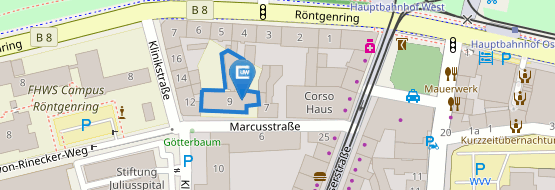Publications
Seeger, L., Kuebler, A., & Hilger, K. (under Review). Drop-out rates in animal-assisted psychotherapy - results of a quantitative meta-analysis. (Preprint: https://osf.io/uk345)
Thiele, J. A., Faskowitz, J., Sporns, O., & Hilger, K. (under Review). Can machine learning-based predictive modelling improve our understanding of human cognition?. bioRxiv, 2023-12. https://doi.org/10.1101/2023.12.04.569974
Pfeiffer, M., Kuebler, A., & Hilger, K. (under Review). Modulation of Human Frontal Midline Theta by Neurofeedback: A Systematic Review and Quantitative Meta-Analysis. bioRxiv, 2023.11.10.566628. https://doi.org/10.1101/2023.11.10.566628
Popp, J. L., Thiele, J. A., Faskowitz, J., Seguin, C., Sporns, O., & Hilger, K. (2024). Structural-functional brain network coupling predicts human cognitive ability, Neuroimage, 120563. https://doi.org/10.1016/j.neuroimage.2024.120563
DeYoung, C. G., Sassenberg, T., Abend, R., Allen, T., Beaty, R., Bellgrove, M., … Hilger, K., … Wacker, J. (2023). Reproducible between-person brain-behavior associations do not always require thousands of individuals. (Preprint: https://psyarxiv.com/sfnmk)
Hilger, K., Häge, A., Zedler, C., Jost, M., & Pauli, P. (2023). Virtual Reality to understand Pain-Associated Approach Behaviour: A Proof-of-Concept-Study. Scientific Reports, 13, 13799. https://rdcu.be/dkd8f
Nebe, S., Reutter, M., Baker, D., Bölte, J., Domes, G., Gamer, M., Gärtner, A., Gießing, C., Mann, C. G. née, Hilger, K., Jawinski, P., Kulke, L., Lischke, A., Markett, S., Meier, M., Merz, C., Popov, T., Puhlmann, L., Quintana, D., Schäfer, T., Schubert, A.-L., Sperl, M. F. J., Vehlen, A., Lonsdorf, T., & Feld, G. (2023). Enhancing precision in human neuroscience. eLife, 12, e85980. https://doi.org/10.7554/eLife.85980
Glück, V. M.*, Engelke, P.*, Hilger, K.*, Wong, A. H. K., Boschet, J. M. & Pittig, A. (2023). A network perspective on real-life threat, anxiety and avoidance. Journal of Clinical Psychology, 1-16. https://doi.org/10.1002/jclp.23575
Wehrheim, M. H., Faskowitz, J., Sporns, O., Fiebach, C. J., Kaschube, M., & Hilger, K. (2023). Few Temporally Distributed Brain States Predict Human Cognitive Ability. NeuroImage, 120246. https://doi.org/10.1016/j.neuroimage.2023.120246
Verona, E., Chen, H., Hall, B.,….Hilger, K.,…Clayson, P. E. (2023, in-principle acceptance, Registered Report Stage 1, Cerebral Cortex). Fear, Anxiety, and the Error-Related Negativity: A Registered Report of a Multi-Site Replication Study.
Thiele, J., Richter, A., & Hilger, K. (2023). Multimodal Brain Signal Complexity Predicts Human Intelligence. eNeuro. https://doi.org/10.1523/ENEURO.0345-22.2022
Hilger, K., & Euler, M. (2022). Intelligence and Visual Mismatch Negativity: Is Pre-Attentive Visual Discrimination Related to General Cognitive Ability? Journal of Cognitive Neuroscience, 35 (3), 1-17. https://doi.org/10.1162/jocn_a_01946
Kiser, D., Gromer, D., Pauli, P., & Hilger, K. (2022). A Virtual Reality Social Conditioned Place Preference Paradigm for Humans: Does Trait Social Anxiety Affect Approach and Avoidance of Virtual Agents? Frontiers in Virtual Reality, 3, 916575. https://doi.org/10.3389/frvir.2022.916575
Frischkorn, G. T.*, Hilger, K.*, Kretzschmar, A.* & Schubert, A-L.* (2022). Intelligenzdiagnostik der Zukunft: Ein Plädoyer für eine prozessorientierte und biologisch inspirierte Intelligenzmessung. Psychologische Rundschau, 73 (3), 173-189. https://doi.org/10.1026/0033-3042/a000598 (English Translation: https://psyarxiv.com/3sf7m/)
Hilger, K., Spinath, F., Troche, S. & Schubert, A-L. (2022). The Biological Basis of Intelligence: Benchmark Findings. Intelligence, 93, 101665. (Free access link: https://authors.elsevier.com/c/1fEyjaSXL~mDC)
Linhardt, M., Kiser, D., Pauli, P, & Hilger, K. (2022). Approach and Avoidance Beyond Verbal Measures: A Quantitative Meta-Analysis of Human Conditioned Place Preference Studies. Behavioural Brain Research, 113834. https://doi.org/10.1016/j.bbr.2022.113834
Thiele, J., Faskowitz, J., Sporns, O., & Hilger, K. (2022). Multi-Task Brain Network Reconfiguration is Inversely Associated with General Intelligence. Cerebral Cortex, 1-11. Free-access link: https://academic.oup.com/cercor/advance-article/doi/10.1093/cercor/bhab473/6523266?guestAccessKey=376a3a6e-9f15-4b27-be7a-a0e08cd6bf64
Hilger, K., & Hewig, J. (2022). Individual Differences in the Focus: Understanding Variations in Pain-Related Fear and Avoidance Behavior from the Perspective of Personality Science, PAIN, 163(2), e151-152. http://doi.org/10.1097/j.pain.0000000000002359
Hilger, K., & Sporns, O. (2021). Network Neuroscience Methods in Studying Intelligence. In A. K. Barbey, S. Kamara, & R. Haier (Eds.), The Cambridge Handbook of Intelligence and Cognitive Neuroscience. Cambridge University Press. https://doi.org/10.1017/9781108635462
Hilger, K. & Markett, S. (2021). Personality network neuroscience: promises and challenges on the way towards a unifying framework of individual variability. Network Neuroscience, 5(2), 1-34. https://doi.org/10.1162/netn_a_00198
Hilger, K., Sassenhagen, J., Kühnhausen, J., Reuter, M. Schwarz, U., Gawrilow, C, & Fiebach, C. J. (2020). Neurophysiological markers of ADHD symptoms in typically-developing children. Scientific Reports, 10, 22460. https://doi.org/10.1038/s41598-020-80562-0
Hilger, K., Fukushima, M., Sporns, O., & Fiebach, C. J. (2020). Temporal stability of functional brain modules associated with human intelligence. Human brain mapping, 41(2), 362-372.
Hilger, K., Winter, N., Leenings, R., Sassenhagen, J., Hahn, T., Basten, U., & Fiebach, C. J. (2020). Predicting Intelligence fron Brain Gray Matter Volume. Brain Structure and Function, 225, 2111-2129. https://doi.org/10.1007/s00429-020-02113-7
Hilger, K., & Fiebach, C., J. (2019). ADHD Symptoms are Associated with the Modular Structure of Intrinsic Brain Networks in a Representative Sample of Healthy Adults. Network Neuroscience, 3(2), 567-588. https://doi.org/10.1162/netn_a_00083
Hilger, K., Ekman, M., Fiebach, C. J., & Basten, U. (2017). Efficient hubs in the intelligent brain: Nodal efficiency of hub regions in the salience network is associated with general intelligence. Intelligence, 60, 10-25. http://doi.org/10.1016/j.intell.2016.11.001
Galeano Weber, E., Hahn, T., Hilger, K., & Fiebach, C. J. (2017). Distributed patterns of occipito-parietal functional connectivity predict the precision and variability of visual working memory. NeuroImage, 146, 404-418.
Hilger, K., Ekman, M., Fiebach, C. J., & Basten, U. (2017). Intelligence is associated with the modular structure of intrinsic brain networks. Scientific Reports, 7(1), 1–12. https://doi.org/10.1038/s41598-017-15795-7
Basten, U., Hilger, K., & Fiebach, C. J. (2015). Where smart brains are different: A quantitative meta-analysis of functional and structural brain imaging studies on intelligence. Intelligence, 51, 10–27. http://doi.org/10.1016/j.intell.2015.04.009
* geteilte Erstauthorenschaft


